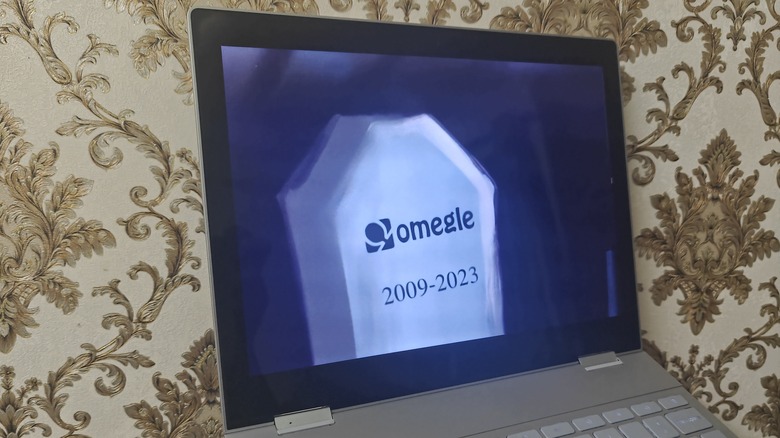Why Did Omegle Shut Down? The Concerns And Lawsuit Behind The Closure
Omegle, a well-known video and text chat service that connected random strangers online, has finally shut down nearly 14 years after it started. The service's popularity waned after multiple apps with a better interface and features popped up in the scene, but it experienced a resurgence during the pandemic years. Moreover, it also became popular on social platforms such as TikTok when content creators started posting recordings of their interesting Omegle interactions with strangers.
However, the safety of young users and a lingering specter of abuse always loomed over Omegle over the years. Legal challenges soon followed atop pressure from non-profits and regulators, ultimately leading to Omegle's shutdown a few days ago. Leif K-Brooks, who started Omegle at 18, posted on the website that running Omegle was "no longer sustainable, financially nor psychologically."
Omegle reported 600 000 incidents of child sexual abuse on its site in 2022. It was egregiously dangerous and the world is a better place without it.
The fact that it was taken offline by civil action and not state enforcement is an indictment of the weakness of US regulation. https://t.co/dGT28NcgPz
— Michael Salter (@mike_salter) November 9, 2023
K-Brooks didn't go into details about what exactly transpired behind the scenes that led to Omegle's shuttering. Still, he did mention that Omegle's safety and moderation tools put certain bad actors behind bars while working with law enforcement agencies. The Omegle founder added that the company relied on a mix of AI tools and human moderators to keep the platform safe, adding that the online platform "punched above its weight in content moderation."
However, those claims of moderation and safety measures aren't particularly proactive. Omegle merely warned users against violating its user age rules and did some banning, but that wasn't enough for a website with a monthly traffic north of 70 million users.
Inherently problematic
For all its good intentions of helping connect with cool strangers, Omegle had a problem with online child safety. Earlier this year, a person was sentenced to 16 years for eliciting sexual materials from underage girls as young as seven years of age over the course of three years on Omegle. BBC also highlighted more than 50 cases of sexual abuse involving minors across the world that took place on Omegle since 2021. Among them was a woman who was targeted when she was only 11 and later proceeded to sue Omegle in 2023.
A UN Special Rapporteur investigation in 2021 found multiple minors engaged in sexual activities on Omegle and how the website easily connected underage users with adults. In 2020, The New York Times also highlighted the prevalence of sexual and pornographic content on Omegle.
When Australia's national regulator for online safety reached out to Omegle regarding the safety aspects, the company revealed that it only employed three human moderators for video chats and one moderator for text chats. The report, which was published by e-Safety in 2022, also mentioned that Omegle offers no in-service option to report abuse, there was no age check tool save for a consent checkbox that anyone could click, and there were no measures in place to stop minors from connecting with adult bad actors.

